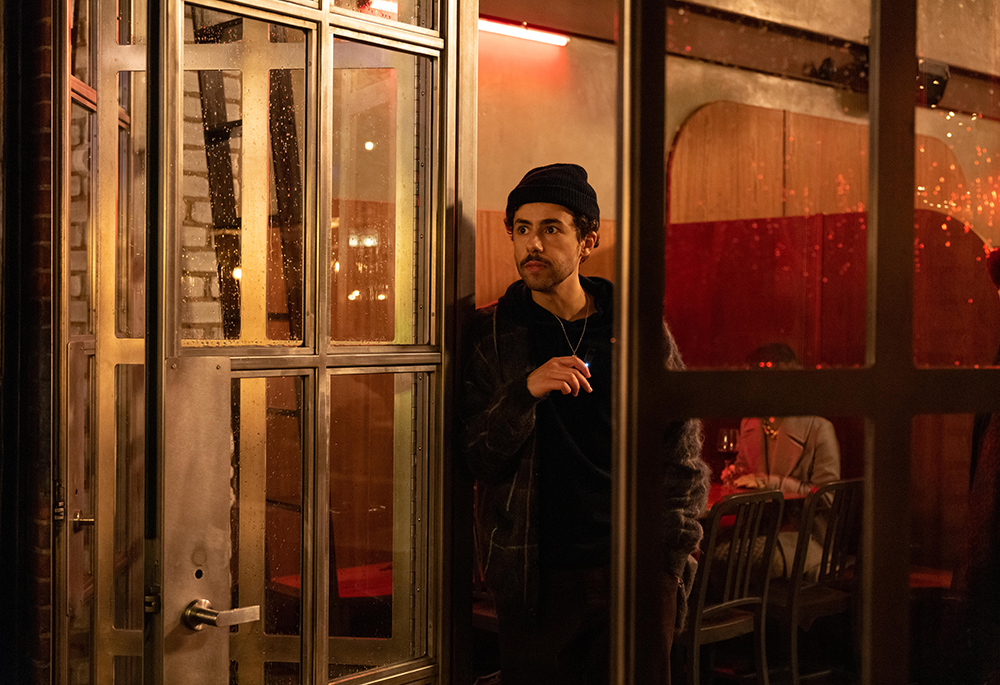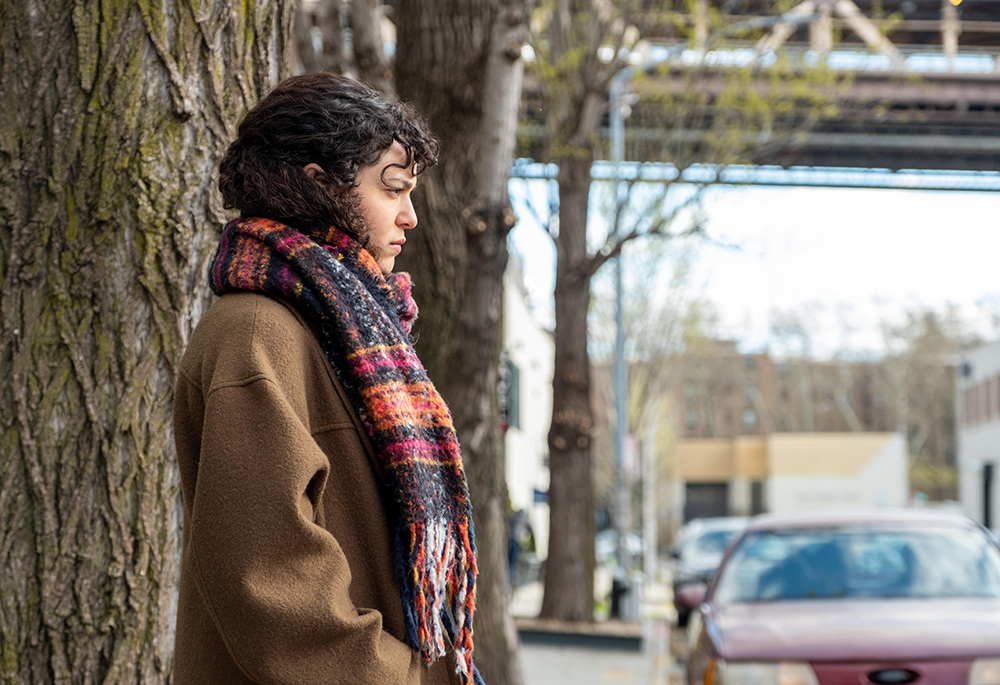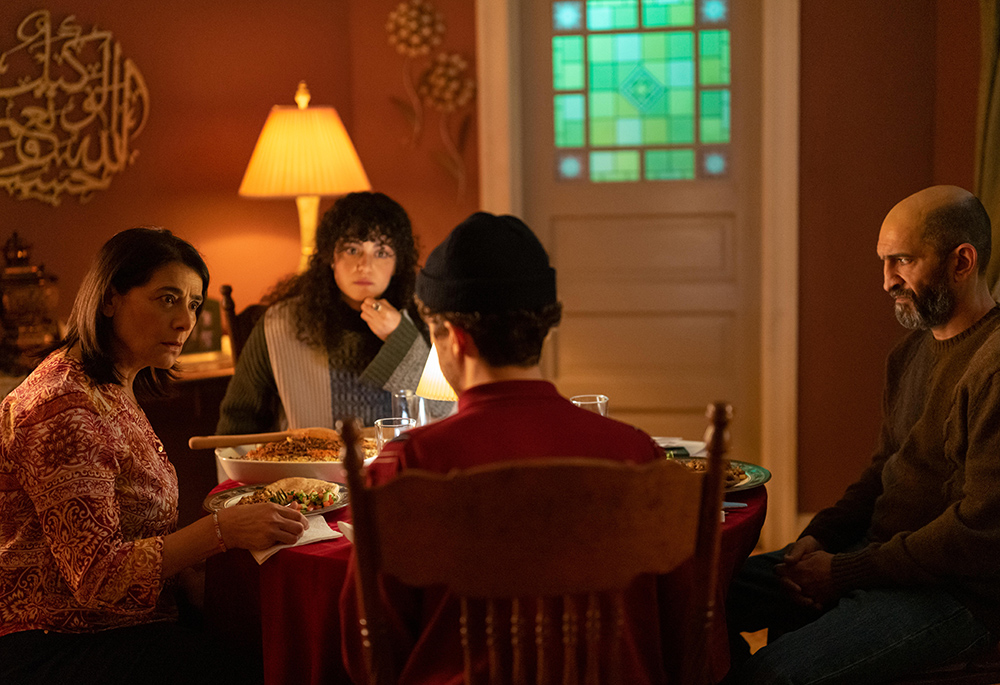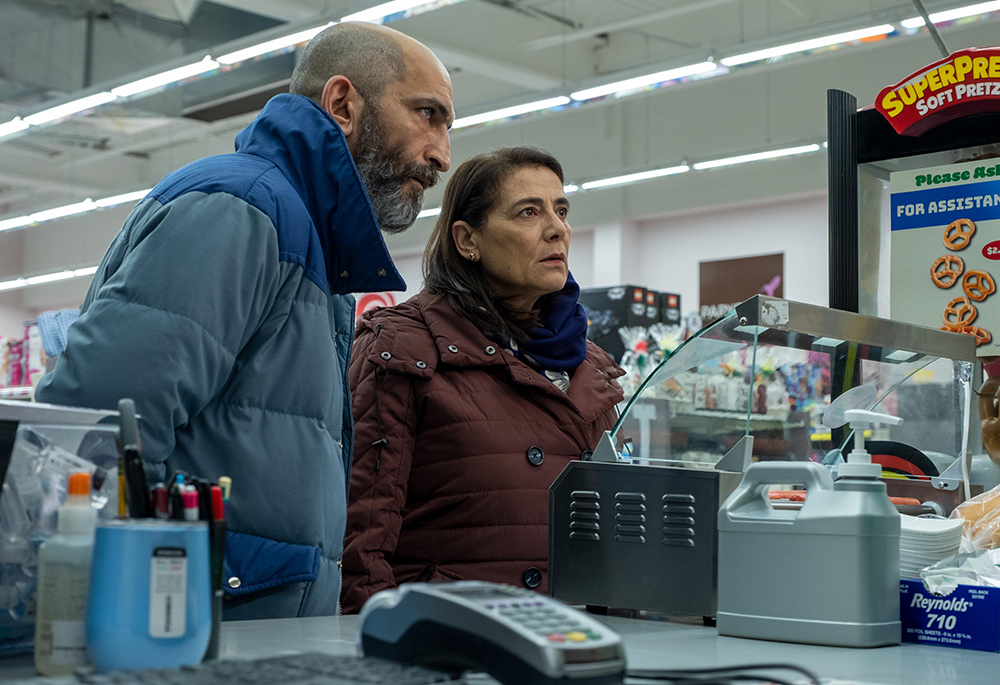
Ramy (Ramy Youssef) in Season Three of "Ramy" (Jon Pack/Hulu)
The third season of Hulu's "Ramy" has a knack for delving into divisive cultural issues with incredible nuance and subtlety. Ramy Youssef, the show's lead actor and executive producer, uses his witty sense of humor to obliquely critique all factions within the so-called culture wars.
The show manages to transcend partisan allegiance, approaching hot-button issues with the intention to make everyone think rather than pandering to a particular "side." Never settling for cliches or conventional posturing, it dares to open its audience's eyes to the many facets implicated in the issues we argue over, and to nudge us to consider that there are certain values that transcend politics or cultural debates — namely God, the source of truth and unity itself.
The series features Ramy Hassan, the son of Egyptian immigrants, who grew up and lives in Jersey City, New Jersey. He is struggling with his Muslim faith, his identity as a first-generation Egyptian American, his career path and a difficult addiction to pornography and sex. His parents are "culturally" Muslim, making little time for prayer, but placing value in certain Arabic moral and cultural norms, which puts them in conflict with their capitalistic aspirations to achieve the "American dream." In an attempt to reconnect with his faith in God and his ethnic roots, he travels to Egypt, where he meets his cousin who is also on a spiritual journey. She invites him to a Sufi prayer service, but they end up sleeping together afterward.
Upon his return, he feels compelled to seek help from a Sufi master, Sheikh Malik (Mahershala Ali). In their moving first encounter, Ramy confesses that "I feel like I have this hole inside of me that's — this, like, emptiness. And I'm always trying to fill it with something. … And I've tried to fill it with God. … But I just — I don't know how." After forming a relationship with the sheikh, Ramy falls in love with his daughter, Zainab (MaameYaa Boafo), and eventually marries her. But upon revealing the truth the morning after their wedding night about sleeping with his cousin, Zainab divorces him and shuts him out of her life.
Season Three begins a year after the divorce. We find that Ramy is on the way to opening up his own lucrative jewelry store in Manhattan's Diamond District, continues to struggle with his sex addiction, and is almost finished paying off his dowry (a whopping $100,000) to Zainab, who still refuses to speak with him.
From the first episode, the show wades into tendentious ethnic and sociocultural divides that usually don't get treated with adequate attention in the mainstream media. Ramy meets one of his ex-girlfriends in a bar to reconcile with her. She criticizes him for working with Zionists in the Diamond District and he reminds her — a white secular Jew from a well-to-do family — that some people don't have the luxury to work for a nonprofit and buy fair trade organic food. Political correctness can often come at a greater cost for those with less privilege.
As he leaves the bar, he is approached by a witch, who claims that she knows what it's like to be outcast for one's religious beliefs. He sneeringly reminds her that most Muslims didn't come to faith by just "waking up one morning" and deciding to practice Islam out of boredom or wanting to be unique, and that practicing Islam is not "just like" casting spells and "manifesting" our own personal wills.
The implications of the show's political humor ranges from the lighthearted to the more heavily charged. Ramy goes to visit his friend Mo (Mohammed Amer), whose halal food cart is covered with both left- and right-wing bumper stickers (including "Black Lives Matter" and "Make America Great Again"). What Mo claims is a marketing ploy to appeal to a wider customer base comes off as a snide jab at the superficial performativity of virtue signaling.
Advertisement
Ramy's Uncle Naseem (Laith Nakli) has a similar effect. A closeted gay man who seems to be in a state of denial despite his Grindr usage, Naseem openly mocks Democrats and liberal political concerns, but also claims to hate Republicans. He snaps back at one of his sexual partners who can't understand why he won't just "pick a side": "You kids! You can be six different genders but you have to fit into the Democrat. I'm politically fluid!"
Ramy's new friendship with Yuval (Julian Sergi), an Orthodox Jew, presents us with some more complicated political fodder. They often commiserate about the challenges of keeping up with the rituals and moral proscriptions of their respective faith traditions, bringing them to the conclusion that the conflict between Israelis and Palestinians is strictly political and has nothing to do with religion, as they all are seeking the same God. The show risks painting over this issue with a simplistic and naive broad brush, ignoring the ways in which certain religious convictions do indeed shape the political attitudes of Israelis and Palestinians.
The treatment of religious and intercultural conflict is approached with profound nuance through the character of Dena (May Calamawy), Ramy's sister. The most outwardly progressive member of the family, Dena has shed her family's "oppressive" faith tradition and patriarchal worldview. A burgeoning career woman who intends to never get married, she is preparing to take the bar exam, making it her mission to offer legal assistance to women and immigrants who are victims of sexism and xenophobia. She scoffs when people reply with the phrase "inshallah (God willing)" every time she declares her aspirations. She becomes indignant with a devout Muslim virgin who asks to marry her the morning after they have a one-night stand, lest their encounter be rendered "haram (forbidden)."

Dena (May Calamawy) in Season Three of "Ramy" (Jon Pack/Hulu)
Dena decides to seek help for her inherited generational trauma from a white therapist who mixes new age spirituality and role-play with her counseling methods. Insisting that Dena's mother's abrasiveness and critical attitude are "abusive," she encourages her to bring her mother Maysa (Hiam Abbass) to group counseling. Maysa attends the meeting reluctantly, but storms out after being made to feel like a bad mother, despite the many sacrifices she made for and values she instilled in her children.
Afterward, the therapist asks the other group members to engage in role-play with Dena. They proceed to mock her mother's accent and "backward" beliefs, waking Dena up to the culturally elitist attitude of the people in the group. She is forced to confront the fact that the answer to seeking healing with her mother is somewhere between the "extremes" of trivializing the pain Maysa inflicted on her, and labeling her mother's imperfect yet earnest attempt to raise children in a foreign country "abusive."
The performances of Abbass (Maysa) and Amr Waked (Farouk, Maysa's husband) are the season's most compelling, as they face their own set of dramatic cultural and spiritual crises. Farouk, who is struggling to bring in enough money to support the family — and to maintain his sense of masculine pride as the "breadwinner" — takes off to Egypt to work as an "American life coach." He's thrown for a loop when he meets his friend's young daughter who is pregnant and wants to obtain an abortion in secret.
While trying to figure out how to handle the situation, Farouk calls Maysa and leaves her a sentimental voicemail, expressing how much he loves and misses her. His friend's daughter is taken aback, claiming that he sounds like a "real feminist" who actually cares about women and isn't afraid to be vulnerable, unlike the so-called feminist men in Egypt who really just want to use girls for sex. Farouk admits that he only learned to become more sensitive and caring as time went on in his marriage, and proceeds to plead with her not to terminate the pregnancy, and instead to stay in a relationship with her boyfriend.

Maysa (Hiam Abbass), Dena (May Calamawy), and Farouk (Amr Waked) in Season Three of "Ramy" (Marcus Price/Hulu)
Upon his return home, he and Maysa decide to meet with a real estate agent so that they can sell their home in an effort to pay off some of their debt. The white agent suggests they hire a stager, as the home in its current condition — with its "ethnic clutter" and religious art — would be a turn off to potential buyers. This causes them to begin to question their blind trust in the American dream and their less-than-devout religious convictions. They reminisce about how they used to buy hot dogs, even though they contain pork, because it was symbolic of American culture, and end up admitting that their greatest error was feeding their children hot dogs "when they really needed to be fed God."
Toward the end of the season, the show's main characters begin to find a way to balance their faith and their identities as Egyptian Americans. Deena finds herself more willing to embrace both her professional aspirations and her religious beliefs, and Maysa and Farouk are more open to acknowledging the roles of both faith and intergenerational healing. Ramy, who throughout the season seems to have completely lost has faith and is trapped by his financial pursuits and sexual addiction, finds himself able to let go of money and sex and entrust himself to God once again, thanks in part to his relationship with a Catholic prostitute.
Youssef expressed in an interview that the social issues depicted in the show are meant not to be prescriptive, but descriptive. "We're not telling you what to do … or what's right." Instead, he says that the writers are aiming to open up difficult conversations and raise important questions that can ultimately serve to bring people closer.
In the spirit of opening up dialogue about tough issues, Hulu's YouTube page has a run a series of 10 clips entitled "One Cup of Tea" featuring brief but sincere discussions amongst the show's cast members, writers and experts on cultural and religious matter ranging from sexual repression and gender roles to drug use and polygamy.

Farouk (Amr Waked), and Maysa (Hiam Abbass), in Season Three of "Ramy" (Jon Pack/Hulu)
The show's third season shows us that the many issues that divide our culture are not as black and white as we may want to make them out to be. It is an invitation to gain perspective by taking a step back from secondary matters and to consider that which is most essential to living a meaning-filled life.
Islam places a strong emphasis on how submission to God's will can bring about an experience of unity which transcends racial, ethnic and class divides. In some ways, this unifying impulse in "Ramy" echoes the efforts of the Catholic Church's Second Vatican Council to recover what is most essential in our faith tradition: the preeminence of encountering the person of Christ and entering into communion with him and his body (the church as community), as a foundation for entering into matters of morality, politics and culture.
The show is able to hold in tension the possibility of two things being true at once — namely that there are indeed objective spiritual and moral truths, and that it's OK for everyone to be at a different stage in their relationship with said truths. Such appreciation for paradox and nuance is rare to come by in today's mediascape.








